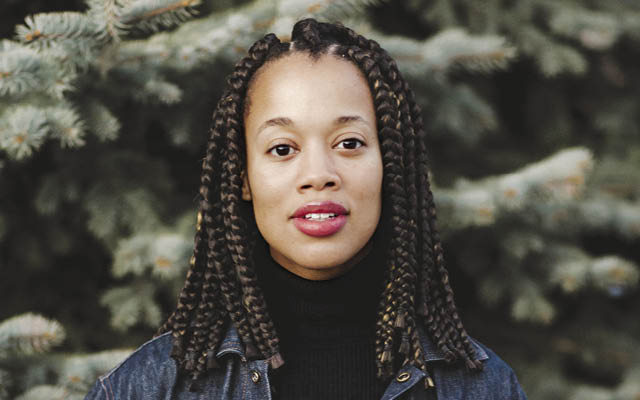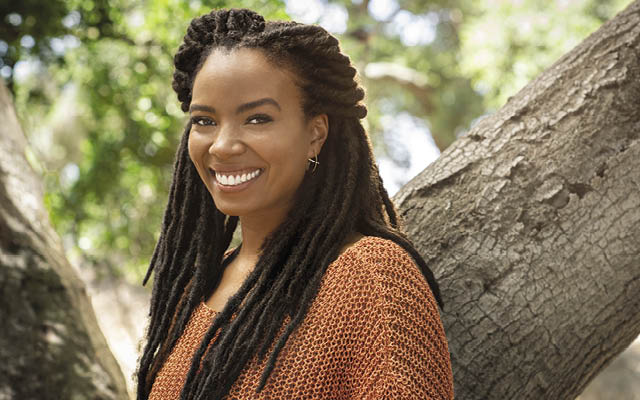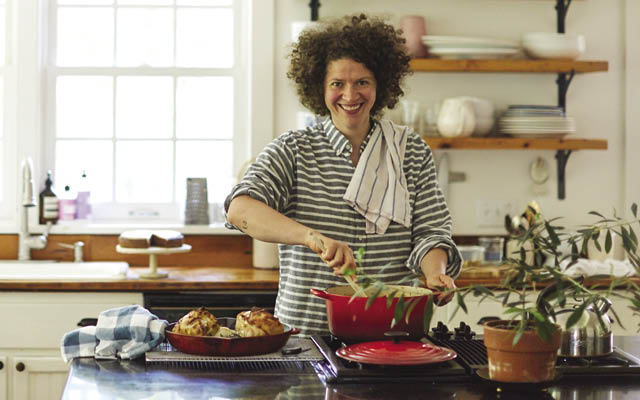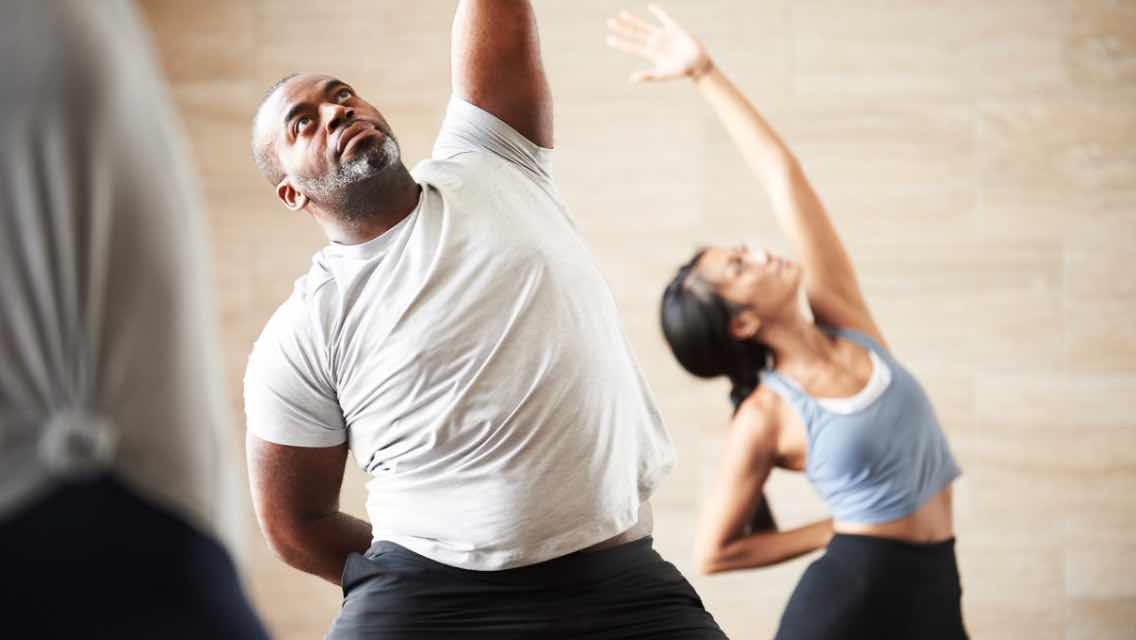When Lauren Ash started Black Girl In Om (BGIO) in 2014, she was longing to find a wellness space that centered around the needs of women of color. BGIO has evolved from its small, grassroots beginning in a Chicago living room to a multiplatform online and offline community with a large social-media following and popular podcast that pushes the wellness conversation forward for black women.
We caught up with Ash to learn more about her projects and how she’s creating more inclusivity in the health and wellness space.
Experience Life | Why did you start Black Girl In Om?
Lauren Ash | I started Black Girl In Om in 2014 because it was a community that I longed for but didn’t have. I was usually the black woman in all of the yoga studios that I practiced within, and I rarely saw another woman of color teach yoga in those spaces. If you don’t see yourself in a space, you’re not going to feel like it’s for you. And I didn’t always feel as though the wellness spaces that I desired to be in really understood my experience and my challenges that relate to everyday existence.
So it began very grassroots and very serendipitously after having connected with a few really phenomenal people in Chicago who heard my story, and said, You should start this and we’ll help you out. It started with a series of yoga and conversation sessions that I titled November Namaste, and has since flourished into a multifaceted lifestyle brand and global community that really connects black and brown women in self-care, self-empowerment, and self-love. We’re really proud to be the leading platform for black women and women of color on their wellness journey.
EL | Why is wellness and self-care so critical for women of color, and why is this conversation important to have in all communities?
LA | In general, in the West and in the United States, in particular, way too many folk are sick, anxious, or depressed. This has become normalized: We are accustomed to dis-ease.
Consider, then, the additional challenges that black women and women of color are likely to face because of the intersections of systemic oppression and historic injustices. That, because of the ways that social constructs, including race, gender, and class intersect, we are more likely to be the recipient of greater forms of dis-ease. We have inherited intergenerational trauma, and we experience microaggressions and our fair share of anxiety that is the result of living within capitalist and patriarchal culture that has us overworked, underpaid, and actively denying our pain and truths.
I think a lot about the issues that face black women when they’re with child and giving birth as compared to white women. It is alarming and indicative of a bigger issue. It’s an institutional issue, related to how our medical system and hospitals are set up and entrenched in systemic injustice, and illuminates how doctors approach black women’s bodies. I’m invested in these conversations. I’m also invested in the conversations about what we can do to heal within our own communities. I’m really interested in promoting a greater awareness about how much the decision to invest in ourselves even a little bit not only impacts you, but how it ripples out and impacts our families and future generations, too.
EL | How did you end up in the yoga and wellness space?
LA | In 2010, when I transitioned from undergrad into graduate school, for the first time in my life, I was alone. I needed a space where I could just be, and where I could also shake off the stress of graduate school, so I went to a yoga studio.
Initially, I practiced yoga not because I loved it or even liked it, but because it allowed me to release and ultimately feel good. Not only did I start to feel good, I also started to feel and notice other things. It offered me a place where, emotionally, I was able to release; and spiritually, I was really noticing and finding a meditative consciousness that would eventually be crucial to my everyday way of showing up in the world. I decided to do an eight-week session at my yoga studio and really dove into the depths of how healing yoga can be. I fell in love with yoga.
My upbringing also led me to my full-fledged passion for well-being. My grandmother was super natural with how she approached a lot of ways to heal; when I had cramps, she told me to boil some ginger, and that worked wonders. Spirituality has also always been a major, major part of my life, and my family has always instilled that in me.
So I practiced yoga for about three years consistently, and then I moved to Chicago, and it was during that year that, after being dissatisfied with my career, I decided to do yoga-teacher training to invest myself into something that I knew I loved and was curious about.
The work that I do now is a beautiful kind of marriage of my passion for racial justice, equity, and solidarity, as well as my passion for community, well-being, mindfulness, and healing.
EL | Your work as an entrepreneur leading BGIO keeps you pretty busy. How do you make time for wellness in your own life?
LA | I used to approach it with the question of, How will I find time for this? But now, it’s like, How will the other things fit around the wellness? Most of my day now is super easeful; it’s super rooted in self-care and mindfulness.
I meditate for 22 minutes in the morning. I journal for however long I want to. I go for a run to the ocean. I go to the gym. I typically don’t even turn my phone on until after all those things are done. It’s a series of choices that I’ve made, and it’s taken a while for me to get here.
I make choices first with my well-being in mind because I understand fundamentally that is what will fuel everything else. It takes time, and it’s been incremental in my journey for five years, but I know that I cannot show up in the service of my work and the service of my purpose if I am run ragged and depleted.
EL | What are the challenges in improving your wellness?
LA | We oftentimes put other people’s expectations above our own, so I practice managing expectations with clients and my team all the time. I set up as many boundaries between myself and my inbox as possible because we live in a time where folk expect to get things really quickly and really fast. That’s not going to be the case with me. I want to model that for people, too; especially as black women, we are oftentimes thought to just continuously be at the service of XYZ. The work is important, but my well-being is actually more important.
EL | Gratitude is a very common thread within your work, podcast, and platforms. Why is it important, and how do you suggest people get started or maintain a gratitude practice?
LA | Gratitude is everything. It helps maintain perspective and energy. About two years ago, I found myself in a chapter of belief that things weren’t happening for me when so many things actually were. I was at this event in Chicago, and my friend came up to me, gave me a big hug, and said, “Congratulations!” I literally in that moment was like, For what? But then I was able to answer my own question. So many beautiful things were blossoming in my life. I just had to change my perspective and give thanks.
So, I encourage you to consider: What is it that is keeping you from seeing all of the beautiful things in your life? Is it because you’re so attached to this vision that you see of yourself and your life happening far off? Consider that between the present and the future vision you have, you may be delaying your happiness; delaying your contentment; delaying your peace. Gratitude is such a natural activator for more abundance and more enthusiasm.
EL | Speaking of more abundance: What conversation from season 4 of the BGIO podcast, which just finished airing, should listeners be sure to check out?
LA | On the podcast, we center on conversations around healing, well-being, and mindfulness as black and brown women. This season I’m really excited about the conversation we had with Reverend angel Kyodo williams, who is a Buddhist priest, and one of a handful of black women to be ordained within the Zen Buddhist tradition. It was so powerful; we talked about so many things, including the importance of a sitting practice, and how urgent and valuable that practice can be for black women. We also talked about the need for greater access for more people of color to be able to take a week-and-a-half or more time off to be able to experience something like that on a retreat.
She’s also someone who has been doing really important work at the intersection of wellness and activism. Again, you’re not thinking just about the individual; you’re thinking about the broader collective and how you’re making choices to show up differently and to heal, and that will always inherently bless the world.
Learn more about Ash’s work and find links to the podcast at www.blackgirlinom.com.




This Post Has 0 Comments